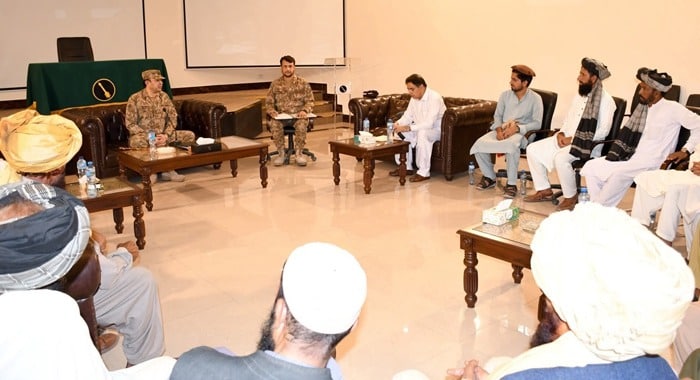In a significant step toward strengthening regional security and development coordination, a high-level jirga was held in Miran Shah, the administrative centre of North Waziristan. The meeting brought together Major General Adil Iftikhar, General Officer Commanding (GOC) of Pakistan Army’s 7th Division, and tribal elders of the Wazir tribe, along with representatives from the district administration.
The primary focus of the jirga was to assess the current security situation, consult on ongoing development initiatives, and formulate strategic responses to the resurgence of terrorist activity in the area. Tribal leaders and civil administration officials actively participated in the discussions, sharing both security concerns and socio-economic grievances.
Major General Adil Iftikhar acknowledged the critical role of tribal communities in the pursuit of long-term peace and stability in the region. He praised their consistent cooperation with the armed forces and reaffirmed the military’s commitment to prioritising development projects, particularly those aimed at economic revival and infrastructure restoration in the post-conflict zone.
Participants expressed their views on security challenges, the pace and quality of reconstruction, and administrative hurdles faced by local communities. The tribal elders reiterated their unwavering support for the state, reaffirming their willingness to work closely with security institutions to preserve law and order.
The elders also commended the Pakistan Army for its continued service in the fields of health and education, which they said had positively impacted the lives of the people in a historically neglected area.
As North Waziristan remains a strategically sensitive region due to its history with militancy, the jirga served as a timely platform for civil-military collaboration aimed at preempting the re-emergence of extremist elements. Such engagements underscore the need for inclusive security frameworks that combine kinetic operations with community engagement and development-focused peace-building.





